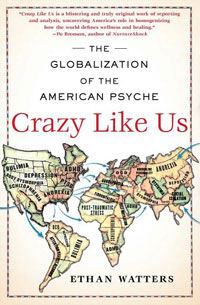Who Knows?

Arguably there are two sure-fire subjects that will get you a book contract: the current (everlasting) educational crisis and depression. And if you are a discerning reader (which, for the purposes of this small discussion, is one who is not enthralled by self-helping snake oil hucksters) interested in the subject, you are apt to be as successfully informed as people afflicted with depression are treated and/or cured. I leave you to calculate the success rate.
In the miasma of literature (there any number of depression-suffering memoirists—proceed at your own peril) on the admittedly difficult topic of depression, I have found Listening to Prozac author and psychiatrist Peter Kramer’sAgainst Depression a sensible explication, both historical and clinical.
Essentially, Kramer argues that we treat chronic depression as a disease—which when it was offered a few years ago was actually a novel way of looking at the condition. Physician and New Yorker writer Jerome Groopman opined:
There is nothing romantic in the suffering of depression. Kramer shows us the horrific reality of the illness, dispelling myths that pervade popular culture. This book should usher in an era when the disordered chemistry of the brain is viewed with the same concern and care that mark the treatment of any malady.
Any way you look at it, diagnosed depression is a health concern of worldwide dimension–and if you take the World Health Organization to be creditable, their statistics indicate a serious quasi-epidemic:
Depression is the leading cause of disability as measured by Years Lived with Disability (YLDs) and the 4th leading contributor to the global burden of disease Disability Adjusted Life Years (DALYs)—the sum of years of potential life lost due to premature mortality and the years of productive life lost due to disability in 2000. By the year 2020, depression is projected to reach 2nd place of the ranking of DALYs calcuated for all ages, both sexes. Today, depression is already the 2nd cause of DALYs in the age category 15-44 years for both sexes combined.
As usual there are a number of recent books that both illuminate and confuse the issues: Manufacturing Depression: The Secret History of a Modern Disease by psychotherapist Gary Greenberg (Simon & Schuster); medical researcher Irving Kirsch’s The Emperor’s New Drugs: Exploding the Antidepressant Myth (Basic Books); and journalist Ethan Watters’s Crazy Like Us: The Globalization of the American Psyche (Free Press).
Luckily (for you and me) I will let Louis Menand do the heavy lifting on the first two titles, but certainly the titles are suggestive of the authors’ biases. Menand early in his discussion offers a subtle though unsettling disclaimer:
Watters’s (whose wife happens to be a psychiatrist) Crazy Like Us lampoons the “grand project of Americanizing the world’s understanding of the human mind.”
Cultures shape the experience of mental illness
All levity aside, there are important and meaningful matters touched on in these books, and though revelation may be unattainable, some useful enlightenment can be had.
